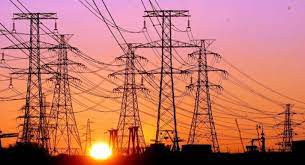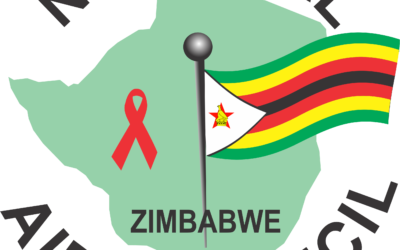
Despite having the means and ways to repay their debts, most Zimbabweans have become so immoral that they simply don’t want to pay what they owe. This thinking is ubiquitous during election years where aspiring candidates capitalise on the love for hand-outs, culture of entitlement and election year euphoria.
This culture of defaulting with impunity has been shaped by past experiences. Lest we forget, in 2013, the then Minister of Local Government, Ignatius Chombo ordered local councils, Zesa and the Zimbabwe Water Authority (Zinwa) to write off debts incurred by residents since 2009. This was, ostensibly to relieve residents from the economic hardships occasioned by the imposition of sanctions on the country. After this directive, Harare went on to write off US$330 million, while Bulawayo reportedly suffered a US$42 million blackhole. The citizens then mistook this populist declaration as a sanctification by government to default at will. Such moral profligacy which has permeated all the levels and groups in our society which has become nauseating.
Debt defaulting is not only emblematic of the poor, far from it. Very powerful politicians,seemingly successful farmers well to do business elites, and everyone else is defaulting. Ironically impunity seems to be failsafe and before dusk these elites will be on social media flaunting their material possessions attributing their success to sheer hard work. Such moral decay is not expected in a very religious society like ours. Hon Jacob Mudenda, Speaker of Parliament, speaking during the occasion of the commissioning of the Divine Mercy Church in 2014 in Bulawayo implored the people to seek God inorder to cure moral decay. He said “If we separate the Church from important national issues, we imperil our nation and are threatened by self-destruction. Imperial Rome was not defeated by an enemy from without. It was destroyed by moral decay from within”.
It therefore goes without saying that righteousness and honesty are essential ingredients for socio-economic wellbeing. Apostle Paul, in Romans 13:7-8 encapsulated the behaviour of a good citizen when he said ‘Pay to all what is owed to them: taxes to whom taxes are owed, revenue to whom revenue is owed, respect to whom respect is owed, honor to whom honor is owed. Owe no one anything, except to love each other, for the one who loves another has fulfilled the law.’
The obnoxious culture of debt defaulting has pulled back several Government and private sector initiated and financed empowerment programmes.
The Command Agriculture programme which started in 2015 as a way to improve agricultural production, is one such programme which was marred by non-repaymentof debts.
This programme was consummated after the realisation that banks were reluctant to lend money to new farmers who had no title deeds to their land. Government stepped in and started providing the farmers with inputs, for which the farmers were supposed to reimburse Government after they had harvested and marketed their produce. This nobble programme suffered high default rate which was reported to be around 85 %.
Government then roped in Banks into the financing of agriculture through a facility called the National Enhanced Agriculture Productivity Scheme (NEAPS). However, the presence of Government as a guarantor invoked the freebies mentality in the people. As such, in 2022 the Ministry of Finance disclosed that the NEAPS had suffered from poor recovery rates. The recovery rates are as low as 0.6% for the CBZ Agro yield 2020 Winter Maize where Government gave a 50% guarantee. The Winter wheat CBZ Agro yield for2021 with a 73% Guarantee had a 40% recovery. These Facilities were affected by side marketing as farmers evaded stop order facilities.
- Chamisa under fire over US$120K donation
- Mavhunga puts DeMbare into Chibuku quarterfinals
- Pension funds bet on Cabora Bassa oilfields
- Councils defy govt fire tender directive
Keep Reading
It is pertinent to highlight that since 2005, Government has been supporting farmers through various programmes most of which have had their liabilities assumed by Government. These include the Agriculture Sector Enhanced Productivity Facility (ASPEF) worth more than US$114 million;Operation Maguta funded to the tune of over US$41 million;Local Authorities reorientation Programme (PLARP) where Local Authorities accessed at least ZWL41 billion;the2007/08 Farm mechanisation programme and the Basic Commodities Supply Intervention Scheme (BACCOSSI) where households were given food humpers.
Although the design of these programmes was good, they failed on implementation leading to moral hazard among the beneficiaries of the programme.
It is an undeniable fact that most local authorities and utilities are grounded due to high default rates.
It was reported, in December 2022, that the power utility, Zesa was owed approximately Z$14 billion in both local and foreign currency. An analysis done by the Parliamentary Portfolio Committee on Energy and Power Development revealed that the Utility was owed US$39 Million equivalent by customers billed in local currency and US$30 million by clients billed in foreign currency. The largest debtors were revealed as local authorities at Z$1 billion, Parastatals Z$189 million and Government Z$400 million
The Auditor General, in the 2021 Audit Report on Appropriation and Fund accounts lamented the non-payment of debts by citizens as crippling social service delivery in the country. The Health Services Fund, which was created for a very noble cause of collecting and administering hospitalfees to supplement the health budget has suffered from deliberate defaults by patients. As such, outstanding receivables by public hospitals increased by 104% to Z$74 million as at December 31, 2020 from Z$36 million2019.
These figures have since shot up. The same defaulting citizens expect to see normally functioning, well equipped and adequately resourced hospitals when they make the next visit.
The same situation prevails in schools where the Government’s directive that no learner should be deprived of the right to education on the basis of non-payment of school fees triggered colossal defaults by parents. The School Services Fund, into which fees payments by parents are deposited was owed in excess of Z$95million in 2020, a 182% increase from the 2019 figure Z$34 million. Some debts have been owing since 2016. The same is reported for the fund created to provide grants and interest bearing loans to tertiary students.
Lest we forget, huge losses were suffered by the Kurera/Ukondla Youth Fund which was under the Ministry of Youth, Indigenisation and Economic Empowerment. The revolving fund suffered high default rates. Recovery rateswere reportedly below 16% in 2014 as most youths viewed it as free Government money.
It is the same mentality that has seen most revolving funds created by Government suffering the same fate. Most recently, it was revealed by the Auditor General that outstanding loans for theYouth Development and Employment Creation Fund have remained stagnantsince 2012. This implies that theseoutstanding loans have not accrued interest even though the recipients didn’t make any payments.
It is no secret that at national level, Zimbabwe is struggling with a debt overhang of US$17.6 billion, of which US$14.04 billion is external debt.
Of this debt, only 64% is the debt outstanding and disbursed while the difference constitutes total arrears and penalties. 45% of the external debt are arrears and penalties.
King David, in his infinite wisdom wrote, in Psalm 37:21,that “The wicked borrows but does not pay back, but the righteous is generous and gives”. As such, the attainment of Vision 2030 will only become possible when we inculcate a culture of savings and borrowing, that is predicated on a culture of timeously paying what we owe.
Chivore is an economist and an expert in Public Finance Management based in Harare. These weekly New Perspectives articles, published in the Zimbabwe Independent, are coordinated by Lovemore Kadenge, an independent consultant, managing consultant of Zawale Consultants (Pvt) Ltd, past president of the Zimbabwe Economics Society and past president of the Chartered Governance & Accountancy Institute in Zimbabwe (CGI Zimbabwe). — kadenge.zes@gmail.com or mobile: +263 772 382 852






